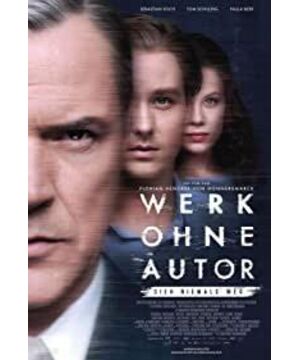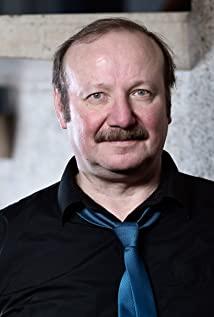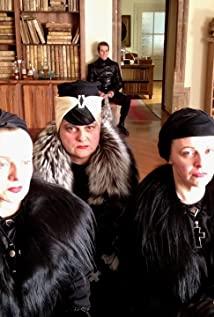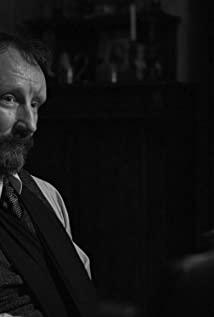After the Holocaust, a large number of scholars began to reflect, and I was most impressed by Bowman's words: Unfortunately, we do not see any way to prevent the Holocaust in Weber's theoretical system, but rather, it was originally included in modernity. In the name of modernity and the Holocaust, this work mainly indicts the rationalized bureaucracy as the foundation of the modern state. In his academic lecture on politics, Weber mentioned that all "private" political power is excluded, The implementation of rational bureaucracy is the foundation of the modern state. The rational bureaucracy here has a specific connotation, that is, the separation of the administrative team and the political power.
A later book included interviews with the low-ranking soldiers who burned Jewish bodies in the concentration camps, who said they were obedient to orders without feeling anything, and that to this day (they are old enough) they still don't care about their earlier actions. What a grudge. This is the cage-like tragedy of "modernity". The reason why the establishment of concentration camps on the eastern frontier can be so effective is because the system of sending orders to and from the barracks is unprecedentedly stylized, and there is no independent standard of good or bad outside the program.
However, what may be more successful in the film is the role of Carl, who does demonstrate another kind of "rationalization", which can be called scientific spirit, or polite adherence to professional territory, or it can be called There was no longer that "bright, sharp, energetic political spirit" known as the spirit of Roman law (in Savigny). In the 18th and 19th centuries, the word "science" was quite complicated. On the one hand, it was indeed praised. In the writings of jurists, only the spirit of science can support all cases and customs that fall within the scope of legal decisions but are indistinguishable. On the one hand, Weber distinguishes between scientific and non-scientific (such as jurisprudence) discussions, but on the other hand, he does not set a superiority or competition between the two. Scientific here also means careful research. , the induction and analysis of experience, in the discussion of economics, Weber vaguely exalted this modern disciplinary spirit.
Karl can be seen as the actualization of such an image. I still remember his only admonition to his son-in-law: it is not enough to be a good person. I have seen many good people end up unfairly. The important thing is that no matter what you do, you must do your best, not "one of them". but the best. (To the effect) In this sense, Carl did not step out of his own post, but it was the distorted racism of the time that should be blamed, which we are no strangers to, the superior Aryan nation. In Celan's poems, this is a tearjerker.
In the unofficial history, Hitler was greatly influenced by Wagner. Wagner was one of the first critics to put forward the theory of Jewish descent, and Wagner, in his real music career, was trying to liquidate his contemporary Hamburg nobleman and retro genius. Mendelssohn. Mendelssohn was Jewish. However, the factors that attribute race to Hitler’s individual can only be talked about. The trend of nationalism was carried out from the Napoleonic Code, when France forcibly spread French in Germany and restricted freedom of speech, it began to arouse nationalist counterattacks, the logic of the nation It's always a duet with the Empire, which is a bit of a waste but it makes sense, it's probably 1808 in Germany.
In the mid-to-late 18th century, the greatest poet Goethe was born. In 1915, he famously told the world book for German culture (probably the name, although it sounds like neo-Confucianism), and listed it as a treasure of Germany, side by side. Also Kant and Beethoven. "We are the kingdom that gave birth to these people"! However, this admiration for the nation, as mentioned earlier, is not always the case. Fichte was later cited by Liang Qichao as a great advocate of nationalism. One stayed in the war zone and the other fled to the countryside, just like Zeng Zi lived in Wucheng and Zisi lived in Wei. Liang Qichao meant that they were all in good shape! And Fichte was also a cosmopolitan in his early years (if there really was one).
But during the Nazis, and the core narrative point of this work about World War II, is eugenics, which is no ordinary nationalism. This is thought to be traced back to Francis Galton, an alleged cousin of Darwin. This is Victorian English. I don't know much about it, so I won't say much for now. But the feel of this article is that we usually only see race in it, yet women are also clearly persecuted characters. The scene where Elizabeth honks the whistle immediately brings tears to my eyes. Just like Scarlett Johansson in "Jojo Rabbit," with a cute little hat and small high-heeled shoes, exquisite clothing and handbags. Like Elizabeth's mint green dress. At that time, women always resisted in a very euphemistic way, robbing the space of "life" from various words such as politics. That's why, in a book titled Time: Modern and Postmodern Experiences, the author argues that women's entry into the job market is an important factor in the transformation of the production model of the assembly-line industry.
For art, what does this work inspire? In fact, what caught my attention the most was Boyce, the male lead's teacher. In fact, Beuys later fell out with the Düsseldorf Academy of Arts and established the German Democratic Party. Beuys is regarded as one of the few later artists with the status of a thinker. The story of his being rescued by the Tatars is used in the play, but Boyce's artwork is obviously not themed on felt and butter (just in terms of the exhibits I saw back then, it felt rich, but I really didn't understand "How to Explain Drawing to a Dead Rabbit"). The attitude of the introduction to modern art expressed in the film is rather interesting:
From the very beginning, the narrator told the little male protagonist that you can draw this too, to the one the male protagonist met in Berlin who criticized Düsseldorf for having only avant-garde art, to Karl saying that white paintings and white walls are not as good as names. Meaning of blank, etc. At that time, there was really not much space left for painting. Around 1946, Pollock on the other side of the Atlantic introduced the art of the European continent to the United States. During World War II in Germany, many artists also fled. situation. In the end, the male protagonist seems to have returned to himself, using painting as a carrier to ask what is self-self, self, self!
Leaving aside the characters that the male protagonist relies on in reality (what we can see now seems to be more of his works after "turning to the color board"), what is the meaning of "a work without a master"? I don't know how to answer this. Boyce in the play and the director himself did not answer. The movie ended so silently. When the male protagonist made the bus whistle again, he seemed to have lost the pain of desperate survival in the depression of the unfortunate 1940s. After World War II, there was no history and no fathers. The cultural atmosphere in Germany at that time was largely influenced by Britain and the United States. There are many movies depicting this. It can be seen from the makeup on the back of the heroine, the slight cat-eye (much like Amy Winehouse) and one-piece bikinis, in one movie the characters are dressed like this lying on the beach. Everyone is very secretive about a common topic, that is, the lost past. This is a blank space that is avoided together, and only white noise is left.
In this sense, the film was a little thin, and in the end it seemed too happy. Although the Soviet Union is high pressure, is the United States an exception? Germany at that time was not allowed to have its own textbooks, and the United Kingdom and the United States monopolized their history writing. The situation did not change until two decades later, but the story was not once and for all, and young Germans began to relive anti-Semitism again.
All kinds are not so easy to write off with the sweetness of love.
View more about Never Look Away reviews










